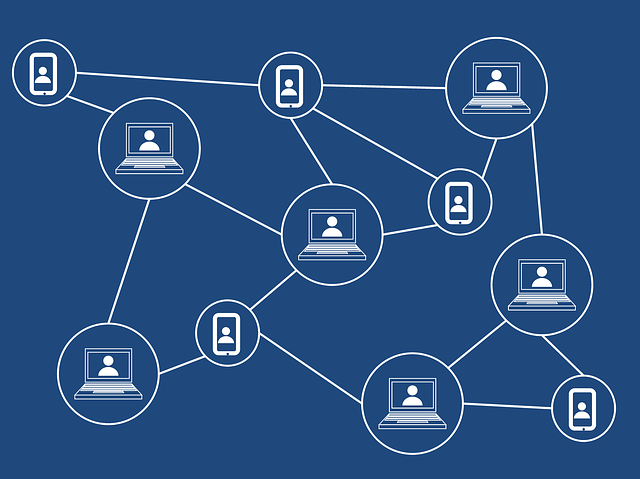Blockchain is a disruptive technology with the capability to change how the world does business. The blockchain’s ability to support smart contracts, quick transactions, and decentralization are just some of its many features. In this article, we will explore 5 reasons blockchain is a disruptive technology and its impact on society as it relates to our economy and environment. We will also discuss how businesses are using the technology.
Blockchain is one of those technologies that can turn your industry upside down if you don’t pay attention now! . It supports the cryptocurrencies such as Bitcoin that continues to attract attention all over.
So what is blockchain?
Blockchain is a distributed ledger technology that records transactions between two parties. It does this by recording the transactions on blockchain’s digital ledger in chronological order using cryptography. It ensures that they are secure and can’t alter is once recorded. Transactions are then grouped into ‘blocks’ that form part of the blockchain.
The blockchain allows participants who don’t know each other to work together without the need for a trusted intermediary. Blockchain technology can be useful in finance, healthcare, international trade, and beyond because it provides transparency, decentralization, and security.
Here are some blockchain techniques that can help your business:
– Cryptography –
This technique verifies and secures transactions. It also ensures that you know who sent the transaction, which means there’s no need for a third-party intermediary like PayPal. Lack of intermediaries decreases costs because blockchain eliminates middlemen.
– Distributed network –
A blockchain operates on many computers at once, so it does not have central authority control e.g. company or government body. Rather, multiple computer systems work together as part of an interconnecting peer-to-peer network where data stored simultaneously on multiple nodes or databases without centralized control. If any single node fails then the blockchain will fail and this offers blockchain enormous resilience.
– Digital ledger –
All transactions on the blockchain are stored in a digital ledger. A blockchain’s digital ledger is a complete history of all transactions that have taken place on its network, including details such as time, date, participants involved in the transaction, the amount transferred, and fees paid for each transaction. Everyone can see these records, so blockchain technology provides transparency.
– Smart contracts –
Blockchain technology also enables creation of ‘smart’ or self-executing contracts. Once one party meets the conditions, the smart contracts will auto complete. Smart transactions could include payments, exchanges of data, property transfers, etc., with no need for third parties like notaries or lawyers.
Here is how companies are using blockchain:
– IBM is using blockchain technology to track the movement of diamonds from mines through each stage of production. This ensures that stones are genuine. This is one of the many projects it has developed. IBM has many projects under blockchain, AI, IoT, Cloud, and Supply chain as part of their technology solutions.
– Alibaba Cloud’s blockchain service was launched in Australia with a range of blockchain services for supply chain finance and logistics companies. It will help them save time on paperwork processing such as invoicing, tracking orders, settling transactions without compromising security or performance.
– Walmart uses blockchain technology to track their food items globally, so they can quickly identify defective products before reaching shelves. This system improves traceability within its supply chain, ensuring that suppliers operate ethically. If anyone is doubting that blockchain disruptive, imagine being able to know the farmer who produced the cocoa in your chocolate bar.
– Maersk uses blockchain technology for their logistics business by offering blockchain-enabled solutions that allow them to track shipments in real-time. This is done while sharing information with all parties involved, including customers and customs agents. Resulting fast delivery times while reducing costs because blockchain has eliminated middlemen like freight forwarders & Non Vessel Operating Common Carriers.
– Voats will soon change how we vote online through blockchain. It allows users anywhere in the world to use a mobile device’s biometric data such as facial recognition or fingerprints to cast a vote. This blockchain-based mobile voting system will ensure secure and accurate voting by using blockchain to record, store & tally votes with military-grade encryption ensuring anonymity while avoiding fraud or manipulation of results. What will happen to the companies’ survival depends on elections?
Here are five reasons blockchain is disruptive
1. Distributed ledger
This means that there’s no one authority controlling transactions and access to the blockchain. Anyone in the world can participate in the blockchain, making it possible for new kinds of interactions between people who don’t know each other. More and more people are clamoring for movement away from centralized power structures. They feel a decentralized system will be fairer. Time will tell.
2. Built-in security features
A blockchain ledger records every transaction ever made on the network. So, it’s impossible to change the record once they’re recorded. Before a block is formed, the majority of computers must verify the transaction. This is called the consensus. No block can be added to chain before conses is reached. The number of computer power required is so huge that it is impossible to corrupt this consensus. This means that blockchain will have a huge impact in even countries where corruption and money laundering are endemic problems. While it will take time and effort, eventually tracing stolen assets will become easy and thieves will have nowhere to hide.
3. Transparency
Everyone in blockchain has visibility into all past and present data on the network. Transparency keeps everyone satisfied with outcomes of operations and has always been a huge topic in politics around the world. Traceability continues to be an important topic when discussing fair trade practices. Blockchain offers a transparency because the record is available for all to see in the blockchain.
4. Secure technology
Blockchain eliminates the need for middlemen by having all peer-to-peer transactions recorded on the blockchain. This means that blockchain will have an enormous impact in industries where there are a lot of intermediaries. Security offered by blockchain is unparalleled and will reduce many courts cases. This is because the facts will be there on the blockchain for everyone to see.
5. Supports smart contracts.
Smart contracts are blockchain’s killer app. A smart contract is a piece of code that can be written into the blockchain to allow certain actions or set conditions for future transactions on the blockchain network. For example, a smart contract can self execute an insurance claim on a blockchain network once you meet certain conditions. There’s no need for formalities and paperwork since the contract is based on agreed smart contract terms. It is amazing how much smart contracts will change the way we live.
This is one reason why blockchain will become popular. It does not matter whether you live in the first world or third world, blockchain will impact you. This technology will resolve some of the world’s biggest problems such as corruptions, elections disputes and fake goods. The financial sector will also benefit massively from blockchain as players work to improve customer experience and value propositions.
In conclusion, blockchain is disruptive to businesses across industries from. This is because it’s transparent, fast, and reduces costs through the use of smart contracts that are automatically executing. With blockchain being useful in almost every industry, this technology has immense potential for growth.
If you liked this article, please share it with friends and family.



